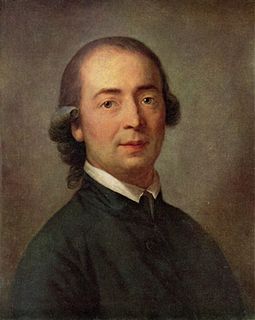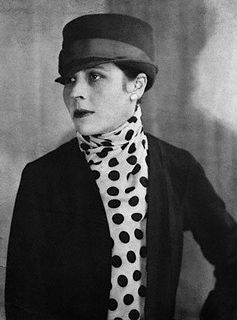A Quote by Johann Gottfried Herder
The savage who loves himself, his wife and child with quiet joy and glows with limited activity of his tribe as for his own life is in my opinion a more real being than that cultivated shadow who is enraptured with the shadow of the whole species
Related Quotes
And he began to see the truth, that Ged had neither lost nor won but, naming the shadow of his death with his own name, had made himself whole: a man who, knowing his whole true self, cannot be used or possessed by any power other than himself, and whose life therefore is lived for life's sake and never in the service of ruin, or pain, or hatred, or the dark.
Each individual composes the music of his own life. If he injures another, he brings disharmony. When his sphere is disturbed, he is disturbed himself, and there is a discord in the melody of his life. If he can quicken the feeling of another to joy or to gratitude, by that much he adds to his own life; he becomes himself by that much more alive. Whether conscious of it or not, his thought is affected for the better by the joy or gratitude of another, and his power and vitality increase thereby, and the music of his life grows more in harmony.
See how he cowers and sneaks, how vaguely all the day he fears, not being immortal nor divine, but the slave and prisoner of his own opinion of himself, a fame won by his own deeds. Public opinion is a weak tyrant compared with our own private opinion. What a man thinks of himself, that it is which determines, or rather indicates, his fate.
A child in his earliest years, when he is only two or a little more, is capable of tremendous achievements simply through his unconscious power of absorption, though he is himself still immobile. After the age of three he is able to acquire a great number of concepts through his own efforts in exploring his surroundings. In this period he lays hold of things through his own activity and assimilates them into his mind.
A person does not...stand motionless and clear before our eyes with his merits, his defects, his plans, his intentions with regard to ourself exposed on his surface...but is a shadow which we can never succeed in penetrating...a shadow behind which we can alternately imagine, with equal justification, that there burns the flame of hatred and of love.
There was a man that hated his footprints and his shadow, so one day he thought that if he ran fast enough, his footprints and shadow would not be able to follow him and then he never ever had to look at them again. He ran and he ran as fast as he could, but the shadow and the footprints had no problems keeping up to him. And he ran even faster and all of a sudden he fell dead to the ground. But if he been standing still there hadn't been any footprints and if he had been resting under a tree his shadow had been swallowed of the trees shadow.
It is a blessed thing that in every age some one has had individuality enough and courage enough to stand by his own convictions, -- some one who had the grandeur to say his say. I believe it was Magellan who said, The church says the earth is flat; but I have seen its shadow on the moon, and I have more confidence even in a shadow than in the church. On the prow of his ship were disobedience, defiance, scorn, and success.
Gaily bedight, A gallant knight, In sunshine and in shadow, Had journeyed long, Singing a song, In search of Eldorado. But he grew old— This knight so bold— And o’er his heart a shadow— Fell as he found No spot of ground That looked like Eldorado. And, as his strength Failed him at length, He met a pilgrim shadow— ‘Shadow,’ said he, ‘Where can it be— This land of Eldorado?’ ‘Over the Mountains Of the Moon, Down the Valley of the Shadow, Ride, boldly ride,’ The shade replied,— ‘If you seek for Eldorado!
In the absence of government each man learns to think, to act for himself, without counting on the support of an outside force which, however vigilant one supposes it to be, can never answer all social needs. Man, thus accustomed to seek his well-being only through his own efforts, raises himself in his own opinion as he does in the opinion of others; his soul becomes larger and stronger at the same time.
What a wee little part of a person's life are his acts and his words! His real life is led in his head, and is known to none but himself. All day long, the mill of his brain is grinding, and his thoughts, not those of other things, are his history. These are his life, and they are not written. Everyday would make a whole book of 80,000 words -- 365 books a year. Biographies are but the clothes and buttons of the man -- the biography of the man himself cannot be written.
Jung first gave us the term ‘shadow’ to refer to those parts of our personality that have been rejected out of fear, ignorance, shame, or lack of love. His basic notion of the shadow was simple: ‘the shadow is the person you would rather not be.’ He believed that integrating the shadow would have a profound impact, enabling us to rediscover a deeper source of our own spiritual life. ‘To do this,’ Jung said, ‘we are obliged to struggle with evil, confront the shadow, to integrate the devil. There is no other choice.’









































